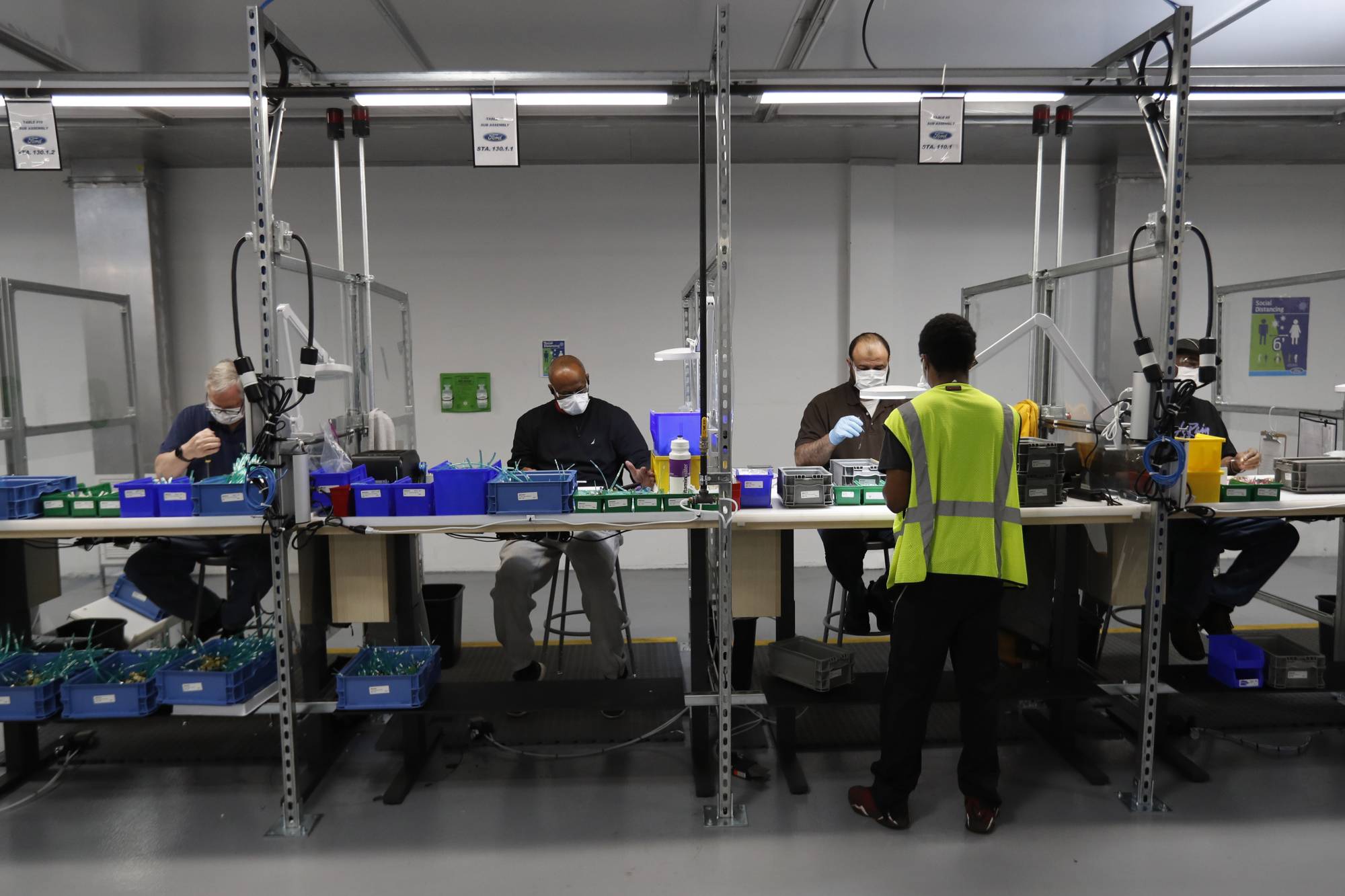Pentagon eyes allied Defense Production Act expansion to shore up critical supply chains
The Pentagon is evaluating the possibility of changing the definition of “domestic sources” under the Cold War-era law to include the United Kingdom and...
The Pentagon is working with Congress to change the definition of “domestic sources” under a Cold War-era industrial investment program so it can make targeted investments in companies in the United Kingdom and Australia.
The proposal is a part of the Defense Department’s effort to address DoD’s reliance on China, and other sources it considers risky, for critical defense supplies and materials.
Jesse Salazar, deputy assistant secretary of defense for industrial policy, said his team is “evaluating all possible options to improve the effectiveness, flexibility and speed of the Defense Production Act (DPA), especially Title III.”
“One way is to augment sourcing possibilities,” Salazar said during an event hosted by George Mason University’s Center for Government Contracting last week.
He said DoD is looking to expand the definition of “domestic sources” under the Defense Production Act to include the United Kingdom and Australia. Currently, the definition only includes businesses operating in the United States and Canada.
“Broadening the definition of domestic sources under the DPA will ensure the timely availability of essential industrial resources to support national defense requirements,” Salazar said. “And we’re working with Congress to make sure that we have that authority to invest in Australia and the U.K.”
Title III of the Defense Production Act gives U.S. presidents broad authority to strengthen and expand domestic industrial resources for supplies deemed critical to national security.
The Pentagon administers the Title III program, and in recent years has made funding agreements with companies to boost production and cut costs for items ranging from medical supplies to microelectronics.
Salazar said Australia’s “sophisticated approach” to rare earth processing could help the United States build up its own processing capacity, while the United Kingdom’s advances in battery technologies, and forging and casting capacities could also help the United States build up its own capabilities in those areas.
The Pentagon can currently make industrial investments in other countries through its Industrial Base Analysis and Sustainment program, but Salazar said the Defense Production Act offers more flexibility.
“The hope is that we have the flexibility through the Defense Production Act to, in the eventuality of emergency, respond quickly,” Salazar said. “I think that’s the true benefit of being able to have that flexibility.”
Salazar said DoD wants to more closely integrate U.S. defense industrial capabilities with allied economies under the “National Technology Industrial Base,” or NTIB. The Fiscal Year 2017 National Defense Authorization Act expanded the NTIB to include Australia and the United Kingdom, in addition to the United States and Canada.
In its July report, the House Armed Services Committee’s “Defense Critical Supply Chain Task Force” called the NTIB an “an underutilized forum” that “should be leveraged to shape policy and partnerships with allies.”
“The NTIB countries and other close allies and partners undoubtedly face similar challenges with over-reliance on Chinese and Russian suppliers,” the report states. “Effective policy to reduce the associated supply chain vulnerabilities requires meaningful, sustained dialogue and collaboration.”
The Pentagon is factoring allied industrial capabilities into the equation as it eyes a five-year, $1 billion effort to move its supply chains away from China, Russia and other risky sources.
The NTIB in particular has a crucial role to play given its carve out in U.S. law, according to Christine Michienzi, chief technology officer for the deputy assistant secretary of defense for industrial policy.
“We are definitely engaging with our partners within the NTIB to try to make sure we’re communicating where our highest risk areas are, and trying to understand what their capabilities either are or where we can partner with them to develop capabilities either within the U.S. or in those countries that we can leverage to fill our supply chain gaps and address our risks. It’s a very key part of what we’re doing moving forward in this effort,” Michienzi said at the Intelligence and National Security Summit last week.
Copyright © 2025 Federal News Network. All rights reserved. This website is not intended for users located within the European Economic Area.
Follow @jdoubledayWFED







